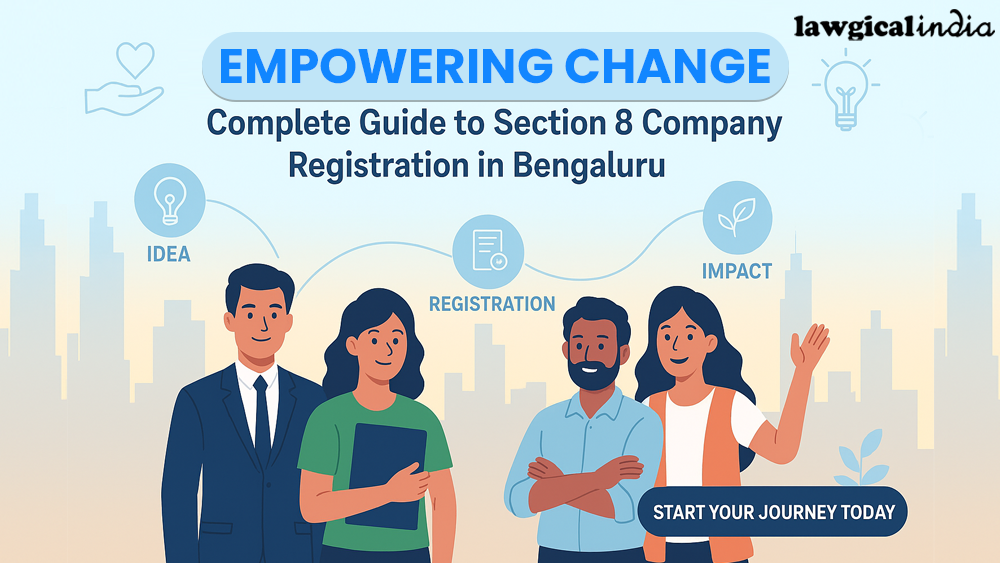The Company Act of 2013 created a new idea called the One Person Company (OPC). A minimum of two directors and two members are necessary for a private company, while a minimum of three directors and seven members are required in a public company. Previously, a single person was not allowed to form a corporation.
What is a One-Person Company?
A one-person company is defined by Section 2(62) of the Companies Act as a company with only one member. Furthermore, members of a corporation are either shareholders or subscribers to its memorandum of association. As a result, an OPC is practically a firm with only one stakeholder.
When there is only one founder/promoter for the firm, this type of company is formed.
The Company Act 2013 allows the formation of a corporation with only one director and one shareholder. This is a type of corporation with fewer compliance obligations than a private company. Here we discuss one person's company's advantages and disadvantages.
One-Person Company Advantages
Separate legal entity:
The member allocates the OPC independent legal entity status. One of the main benefits of the OPC is that it has a separate legal entity and it preserves the individual rights of the individual who founded it. The member's liability is limited to his or her share, and he or she is not responsible for any losses suffered by the company.
As a result, creditors can sue the OPC rather than a member or director.
Perpetual succession:
Even with a single member, the OPC has a feature of perpetual succession. A nominee is appointed when the OPC is incorporated by a single member. When a member passes on, the candidate becomes the new president.
Easy to manage:
It is easy to administer the OPC's affairs because it can be founded and maintained by a single person.
Decisions are easily made, and the process of making decisions is rapid. Ordinary and special resolutions can be readily passed by the member by entering them into the minute book and having the solitary member sign them.
This makes running and managing the company easy since there are no internal disagreements or delays.
Easy incorporation:
It is simple to incorporate OPC because just one member and one nominee are necessary. A member can also be a director. The minimum capital required for forming an OPC is Rs.1 lakh, though there is no requirement for a minimum paid-up capital. This makes forming it easier than other forms of business.
Easy to obtain funds:
OPC is a private company, which makes obtaining funding from commercial firms, capitalists, angel investors, incubators, and other sources easy. Banks and financial institutions prefer lending to corporations over sole proprietorships, which makes obtaining finance easier.
Disadvantages Of One-Person Company
Suitable for only small businesses:
OPC is a good fit for small businesses. At any given time, the OPC can have no more than one member. As the company expands and grows, more members cannot be added to the company. As a result, OPC cannot obtain more funds.
Ownership and management:
The line between ownership and management will be blurred because the only member of the board can also be the director of the organization. Decisions will be made and approved by the lone member. The separation between ownership and control is becoming increasingly blurred and may lead to unethical business practices.
Restriction of business activities:
It is prohibited by law for the OPC to engage in financial investment activities that are not banking-related, such as investments in corporate securities. Similarly, under Section 8 of the Companies Act of 2013, the OPC cannot be converted into a charity corporation.
Eligibility for OPC registration
The eligibility criteria for OPC Registration in India are as follows:
- There can be more than one director, but there can only be one shareholder.
- The death of a member or a change in ownership has no effect.
- In comparison, it is simple to set up and maintain.
- Its members' liabilities are limited.
- There is very little paperwork required.
- Work as a stockbroker or as a sub-broker
- Multiple compliances aren't allowed.
- There is no evidence of outside intervention.
- No one is allowed to form more than one one-person corporation.
- Documents required for OPC registration
- A list of documents required for OPC registration:
- Passport or PAN Card
- Foreign nationals' passports
- Scanned copy of driver's licence or voter ID
- Gas or electricity bill that is current
- Signature sample
- Photo of passport size
The one-person company registration process
The process for One person company registration is as follows:
Step 1: Submit an application for DSC.
The first step involves obtaining a suggested Director's Digital Signature Certificate (DSC), which requires the following documents:
- Aadhaar card
- PAN card Photo
- Email Id
- Phone number used
- Address proof
Step 2: Request a DIN
After the creation of the Digital Signature Certificate (DSC), the next stage is to apply for the proposed Director's Director Identification Number (DIN) in the SPICe Form, along with the director's name and address evidence. Only businesses that are established are eligible to use Form DIR-3. It means that beginning in January 2018, the applicant will not be required to file Form DIR-3 individually. DIN can now be used for up to three directors in the SPICe form.
Step 3: Name Approval Application
The third stage in forming an OPC is to select a name for the business. For example, if the company chooses the name ABC then the company's name will be "ABC (OPC) Private Limited."
In the SPICe+ 32 application, the name can be authorised. In the Form SPICe+ 32 application, only one desired name and the significance of preserving that name can be provided. If the name is rejected, a new one can be submitted through a new Form SPICe+ 32 application.
We will proceed to the following step once the MCA has authorised the name.
Step 4: Required Documents
We must first create the following documents, which must be presented to the ROC:
The Memorandum of Association (MoA) specifies the objectives and goals of the company as well as the nature of the business.
The Articles of Association (AoA) is a document that defines the company's operating procedures.
Since there is only one Director and one member of the board, a nominee appointed on behalf of the person must act in his place if he becomes incompetent or dies. Along with his Aadhar card and PAN card, his consent in Form INC – 3 would be taken.
In addition to documentation of the registered office of the proposed company, proof of ownership, and an authorization letter from the owner, the forms INC-9 and DIR-2 are required to declare and consent to the prospect Director, and a statement that all requirements have been complied with by the professional.
Step 5: Submitting Forms to the MCA
All of these documents, together with the Director's and professional's DSCs, will be added to the SPICe Form, SPICe-MOA, and SPICe-AOA and posted to the MCA site for approval. As soon as a company is incorporated, its Pan Number and TAN are automatically generated. It is not necessary to submit separate applications for the PAN and TAN.
Step 6: The Certificate of Incorporation is issued.
The Registrar of Companies (ROC) will provide a Certificate of Incorporation after verification, and we can begin our business.
One-Person Company [OPC] Registration Online Procedure
The entire OPC registration online process takes about 7-10 working days, including the approval of the DIN, company name, and incorporation. Creating an OPC corporation, on the other hand, is now a simple procedure that allows all documents to be uploaded to a single online platform. Our experts will walk you through the whole OPC Registration procedure.
- Verify documents and eligibility.
- Obtain the director's DSC and DIN.
- Request a name reservation for your company.
- Create a business plan.
- Prepare company incorporation documents such as Memorandum of Association, Agreement of Association, Declaration of Interest, and others.
- Present to you for your approval.
- Fill out the Spice+ incorporation form.
- Submit forms for company registration.
- Apply for an OPC PAN and TAN.
- Wait for the government [MCA] to process your application.
- A certificate of incorporation of OPC with a PAN and TAN is issued by RoC.
- Assist you in starting your business Bank account (current)
How Lawgical India can help in One Person Company Registration?
Our company, Lawgical India, has a top-notch team of experts capable of providing a hassle-free and error-free Online Company Registration Service in India.
Our experts have been doing one-person company Registration daily and keeping up with MCA's latest registration requirements. As a consequence, we can provide you with the best company incorporation service that is compatible with MCA functionality.











